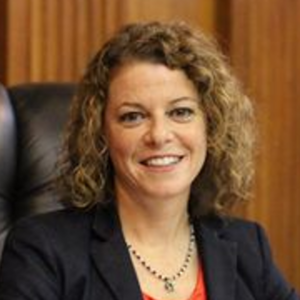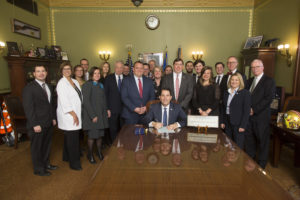On May 11, the Wisconsin Supreme Court held in Talley v. Mustafa that there was no coverage under a business owner’s liability insurance policy for an employee’s actions, despite the plaintiff’s claim of negligent supervision.
The case arises from an incident in which Mustafa Mustafa’s employee punched customer Archie Talley in Mustafa’s store. Talley sued Mustafa and his insurer, Auto-Owners Insurance Company. Talley’s complaint alleged that Mustafa was negligent in failing to properly train and supervise his employees.
In a 4-3 decision authored by Justice Rebecca Bradley (joined by Justices Gableman, Ziegler, and Chief Justice Roggensack), the court held that Talley had no separate negligence claim against the employer Mustafa, and his claim rested solely on the intentional action of Mustafa’s employee. The Auto-Owners policy specifically stated it covers bodily injury only when caused by an “occurrence,” defined as “an accident.” Punching someone in the face is not an “accident,” and the plaintiff failed to show that Mustafa’s actions accidentally led to Talley’s injuries, so the damages are not covered by the policy.
The decision clarifies statements from Doyle v. Engelke that said coverage is based on policy as applied to plaintiffs’ complaints and courts must stay within the “four corners of the complaint” when determining coverage. The court also clarified that, unlike the court’s analysis in Doyle, in claims of negligent supervision, “negligence” does not necessarily constitute an “accident” or covered “occurrence.”
Despite a request for a bright line rule from Auto-Owners, the court also determined that an agreement between an insured and insurer on whether their contract provides coverage does not control a court’s coverage determination.
Wisconsin Insurance Alliance wrote an amicus brief in the case stating that policies generally do not cover intentional assault, and injured parties cannot obtain coverage by pleading negligent supervision against employers.
In her dissent, Justice Walsh Bradley (joined by Justices Abrahamson and Kelly) argued that the majority did not properly make a decision regarding the coverage phase of this bifurcated case. The dissent argued the court should not have based its decision on the merits of Talley’s negligent supervision claim and instead should have decided whether Mustafa would be covered assuming Talley’s claims succeed in the liability phase of the case.
In a second dissent, Justice Kelly (joined by Justices Abrahamson and Walsh Bradley) also distinguished the coverage phase of the case and argued the court should have solely addressed whether Auto-Owners would have covered damages if Talley’s negligence claim prevailed in the merits phase. Kelly’s dissent noted that because Wisconsin is notice-pleading state, Talley did not have to prove Mustafa’s negligence in his complaint to the extent the majority court required. The dissent further disagreed with the court’s ruling that Talley should have showed a direct link from Mustafa’s actions to Talley’s injuries.


